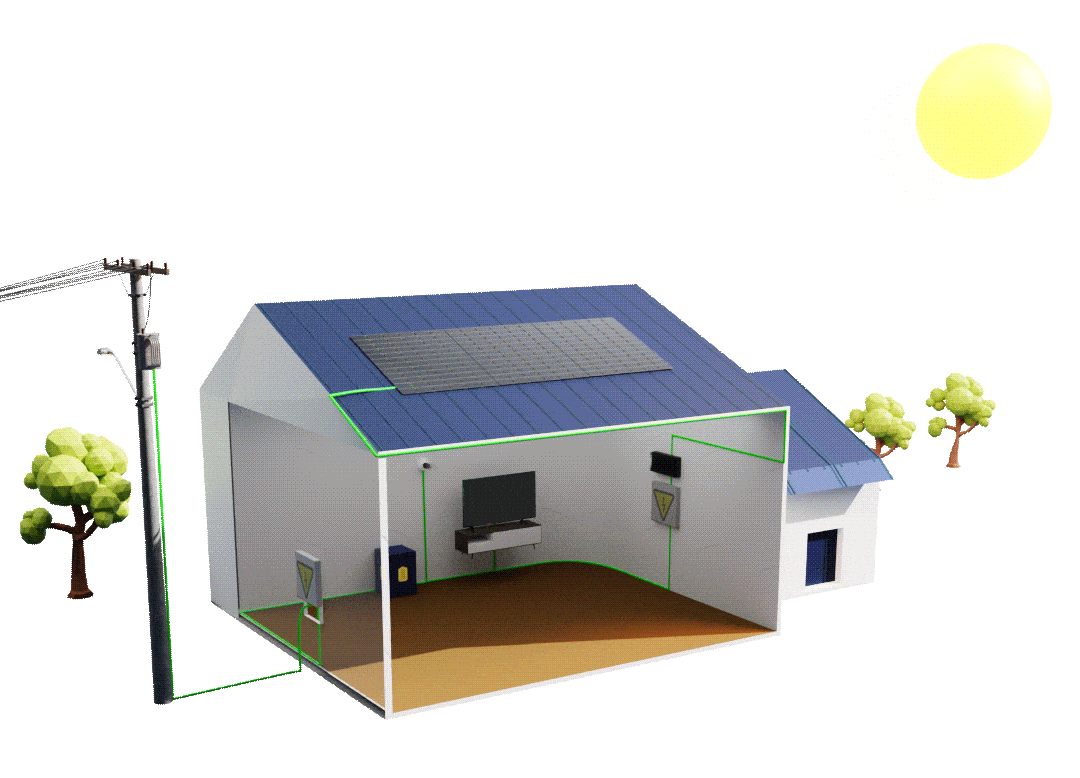The efficiency of solar photovoltaic (PV) panels is a measure of how effective they are in converting sunlight into usable electricity. When solar panels are manufactured they are given an efficiency rating which is what the customer uses to base a purchasing decision on. The efficiency rating is determined by laboratory testing of the solar panels under Standard Test Conditions (STC). These are a measure of how much energy is converted into electricity at an ambient temperature of 25°C and with 1000 W/m2 irradiance, which generally speaking is the optimal conditions you would expect the panels to be exposed to, ie. the equivalent of full solar sunshine around midday.
Under these test conditions, an acceptable range for the efficiency of a solar panel used for a residential home is 15-20%, with some panels seeing results of up to 25%. The general recommendation for a solar panel to produce acceptable results for the user, and therefore to justify an investment and produce a reasonable return on the investment, is anything above 20%. Some more expensive commercial solar panel cells can produce between 40 to 50% efficiency. Although an efficiency rating of around 20% may not seem like a very high result, it should be noted that a 4 kW solar panel should be able to generate sufficient electricity for a homeowner to see a credible reduction in their energy usage, and therefore their energy bills and carbon impact. This is also factoring in that the real-time weather conditions most of us face every day are not as favourable as the STC.
What will influence the efficiency of a solar panel?
There are three types of solar panel widely available, and these will each produce different readings in terms of efficiency. These three types are:
- Monocrystalline – These are the most efficient type of solar panel and are made up of one single piece of silicon. They are also the most expensive type of solar panel.
- Polycrystalline – These are made up of multiple silicon crystals and the gaps between these crystals mean they are slightly less efficient as a result. However, they can be manufactured as a larger solar cell to compensate for this and are also cheaper than monocrystalline panels.
- Thin film – Thin film panels are made of a single, thin substrate covering of glass, plastic or metal. They are the cheapest type of solar panel but also the least efficient.
Solar panel efficiency can be influenced by factors such as the panel type, as explained above, but also by other factors such as:
- Location – where the panels are located, ie. away from shading from buildings or trees, and whether they are tilted to face the sun or flat.
- Temperature – Very hot climates can actually reduce a panel’s efficiency
- Weather – Although solar panels can produce energy on a cloudy day, this is much reduced in terms of efficiency. The lifespan of solar panels is also affected by extreme weather such as high winds, snow and hail, although STC does attempt to replicate these conditions when establishing a panel’s efficiency rating.
- Chemical residue
- UV degradation
The efficiency of a solar panel will reduce over time due to natural degradation, and a combination of the above factors. It is thought that a 0.5% reduction in efficiency each year is likely, and that a 20 to 25-year performance guarantee is therefore standard.
Browse our range of solar panel testing equipment
At Test Instrument Solutions we have a full range of solar PV testing equipment, which can help you monitor the efficiency of your solar panels, including the TIS PV1 irradiance meter. We can also supply a full commissioning kit in the form of the TIS PVCHECKS multi-function commissioning checker. This will help you set-up and install your solar panels safely and to check that they will perform in line with the efficiency rating.
Please note that this section is for information purposes only. Anyone using equipment referred to in this section must be suitably qualified and/or experienced within the respective field. If in doubt before use, please consult a qualified electrician or engineer & thoroughly read all instruction booklets.